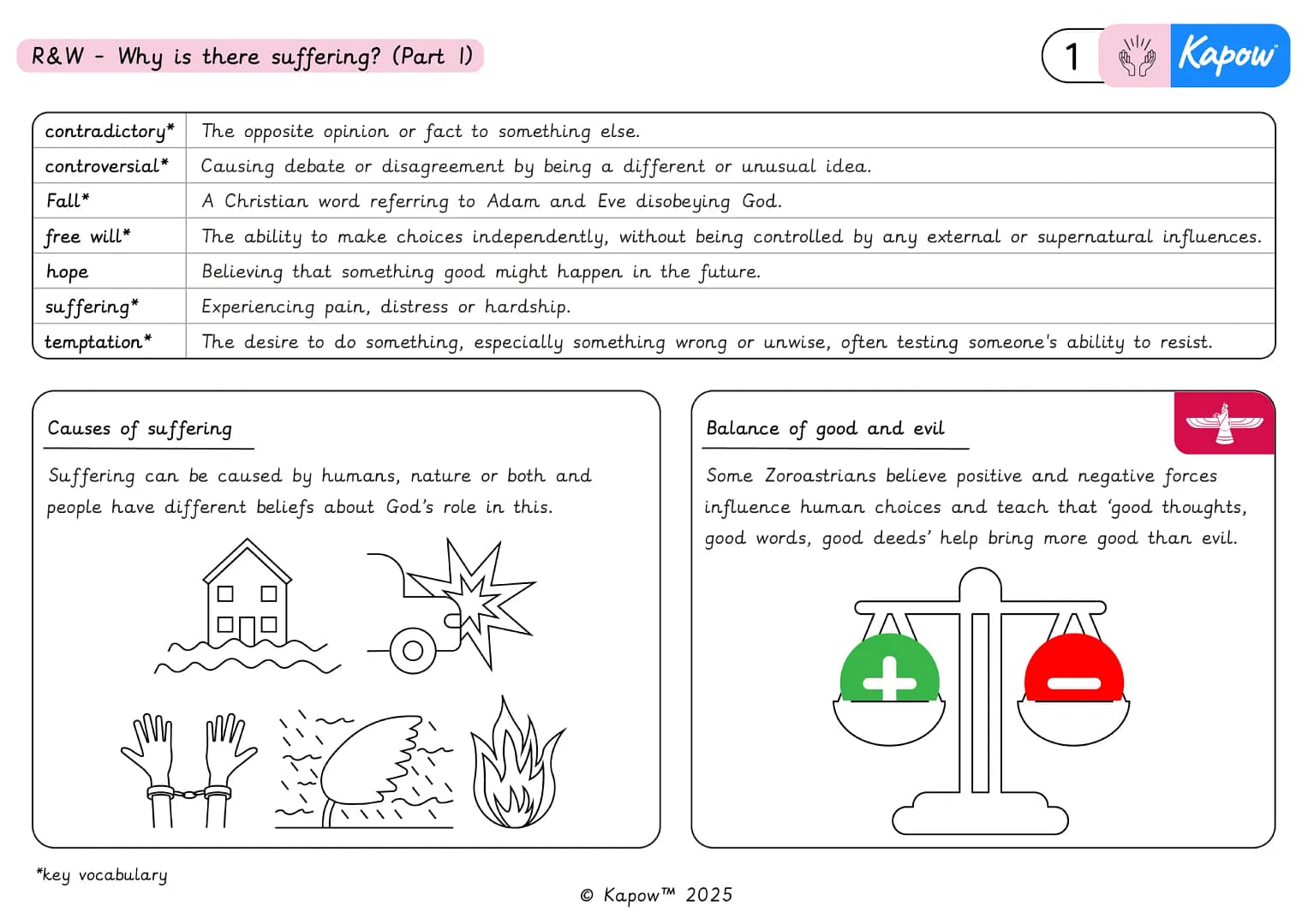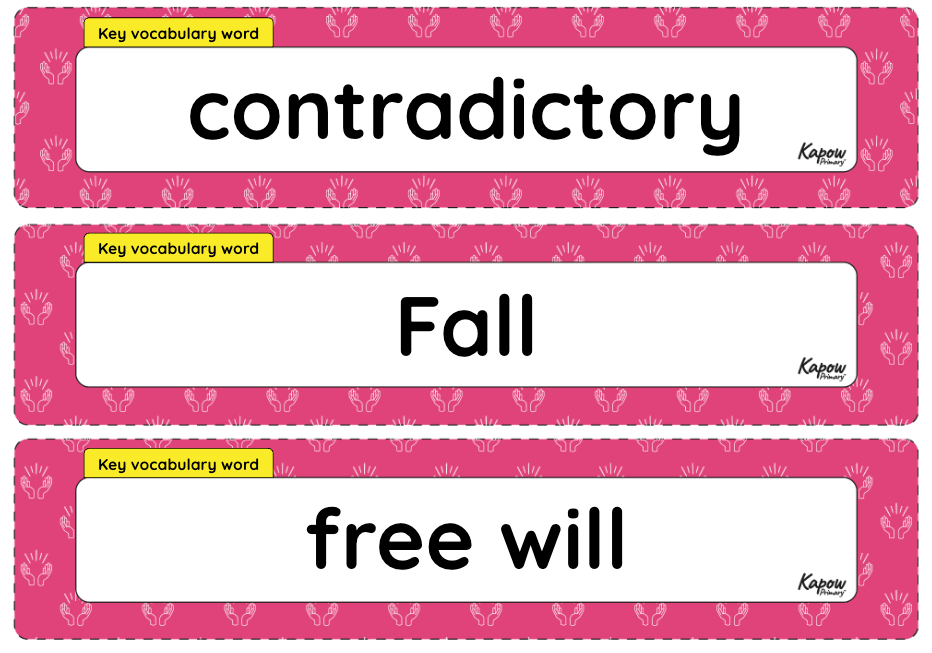Why is there suffering? (Part 1)
Using critical thinking skills to consider their own and others' ideas and beliefs about why there is suffering in the world.
The Curriculum and Assessment Review final report has been released. We’re reviewing the recommendations and planning for future updates. Learn more
- Subjects >
- Religion and worldviews >
- Key stage 2 >
- Year 6 >
-
Why is there suffering? (Part 1)
Unit outcomes
Pupils who are secure will be able to:
- Make links between the creation story in Genesis and the concept of suffering.
- Suggest some ideas as to why suffering exists in the world.
- Discuss passages from Genesis that relate to free will, demonstrating an understanding of context.
- Identify different reasons why humans may make choices that cause suffering.
- Draw connections between stories from scripture.
- Explain why some people turn to prayer during times of suffering.
- Make connections between teachings about Jesus and how some Christians view and respond to suffering.
- Use scripture and personal responses to support their understanding.
In Lesson 2, the children begin adding to the Activity: Suffering snowflake. Keep these for future lessons in the unit.
For an extension of Lesson 6, if possible, interview Christian community members in the local area about how beliefs have helped them in times of suffering. This could be done in person (at school or in church) or online.
Suggested prior learning
Why is it better to be there in person?
Get startedPlease note
Lessons and resources within this unit have been updated, focusing on pitch, lesson length and key vocabulary. The context, skills and knowledge covered and learning progression of the unit remain the same.
Lessons
Lesson 1: How do people suffer?
- To explain some causes of suffering by exploring scripture and experience.
Lesson 2: What is free will?
- To understand the concept of free will through exploring scripture.
Lesson 3: Why do we cause suffering?
- To investigate beliefs about human wrongdoing through religious perspectives.
Lesson 4: Does being good always mean less suffering?
- To explore beliefs about suffering and goodness through scripture and personal responses.
Lesson 5: If God is all-powerful, can suffering not be stopped?
- To explore different beliefs about God’s role in suffering.
Lesson 6: How might beliefs about Jesus affect responses to suffering?
- To examine how teachings about Jesus affect some Christian responses to suffering.
Optional Easter lesson: Why might some people take part in Easter traditions?
- To discuss the impact of different Easter traditions by exploring Holy Week.
Key skills
Key knowledge
Related content
Unit resources

Knowledge organiser – R&W Y6: Why is there suffering? (Part 1)
Aimed at pupils, a double page document that gives key facts and definitions from the 'Why is there suffering? (Part…

Vocabulary display – R&W Y6: Why is there suffering? (Part 1)
A display version of the key vocabulary from the 'Why is there suffering? (Part 1)' unit.
Cross-curricular opportunities
English: Spoken language
English: Reading
Geography: Human and physical skills
RSE/PSHE: Taking part in discussions

